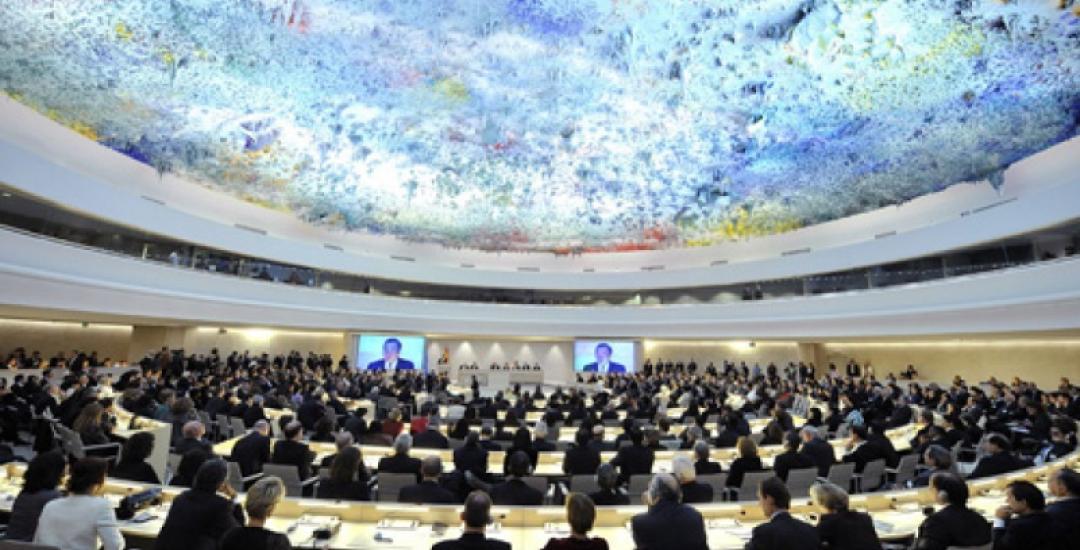
On 20 March 2015, the Human Rights Council (HRC) adopted the outcome of Egypt's Universal Periodic Review (UPR), a process aimed at reviewing the human rights record of all UN Member States by every four years. In a context of serious and gross human rights violations in the country, the Egyptian authorities have accepted many of the HRC's recommendations regarding civil and political rights as well as economic, social and cultural ones. However, past experiences and practice in the field show that the authorities have to do more than just promises.
Alkarama regrets that of the recommendations rejected are the ones regarding the establishment of a moratorium on the death penalty; the end of the military trials of civilians, including children; and the opening of thorough, independent and impartial investigations into the crimes against humanity committed on Raba'a and El Nahda Square in 2013, and thus the refusal to hold those responsible to account. To date, the conclusions of the fact-finding commission established by the authorities after the events have still not been made public, hampering the right to justice of the victims and their relatives.
Out of the 300 recommendations it received, Egypt accepted 224 recommendations in full, 23 only partially, and took note of 53 others. Alkarama welcomes the acceptance of the majority of the recommendations made but regret that most the fully accepted recommendations are in majority the widest and vaguest ones.
Furthermore, we recall that during the review in November 2014, the authorities had declared during that no one "was detained for his/her opinion or freedom of expression" and reiterated this position in the outcome report. However, four months after the review, many journalists remain imprisoned or have been released pending trial only for doing their work in an independent manner.
In addition, in 2014, nearly 20,000 people have been arrested because of their political opinions and the year 2015 has already been marked by a new expeditious mass trial. We regret that the Egyptian government did not fully commit to immediately repeal the law on demonstrations and only took note of recommendations regarding the excessive use of pre-trial detention as a mean to punish peaceful demonstrators and the ones regarding the release of prisoners of conscience, human rights defenders and journalists.
Similarly, the authorities have declared that "there is no torture in prisons," even though Alkarama has continuously sent cases of ill-treatment and torture of men, women and children throughout 2014 and the beginning of 2015. Worse, more than one hundred people have died in detention, either because of torture or because of a lack of medical attention. We urge the Egyptian authorities to swiftly implement the accepted recommendations made towards the complete abolition of this practice in Egypt and the prosecution of perpetrators.
Despite being the future regional hub for the Office of the United Nations High Commissioner for Human Rights (OHCHR), with which the authorities declare to be fully cooperative, Egypt has not accepted any recommendations relative to sending a standing invitations to all UN Special Procedures. It is however essential that the Egyptian authorities and the OHCHR build a strong and straightforward relationship to better protect and promote human rights in the country.
Alkarama hopes that the commitments taken by Egypt today will not remain on paper and that appropriate steps will be taken to swiftly implement the accepted recommendations and to guarantee the Egyptian citizens the free enjoyment of their fundamental rights. This process will be strengthened if Egypt's respect its commitment to submit all its overdue reports to the relevant UN International bodies and gives civil society the possibility to fully participate in all human rights processes.
For more information or an interview, please contact the media team at media@alkarama.org (Dir: +41 22 734 1007 Ext: 810)
